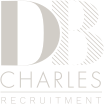According to the Office of National Statistics, there were 815,000 job vacancies in the UK between January and March 2018, with 1.42 million people reported as being unemployed. This adds up to a large and competitive jobs market, especially when you consider it doesn’t account for people who are actively seeking a new role.
To help them stand out from the crowd, numerous jobseekers choose to employ the services of a recruitment consultant, many of whom provide specialist expertise in everything from CV-writing to salary negotiation. However, while consultants can certainly help you on your way to a new role, their ability to place you relies as much on you as it does them.
With that in mind, here are some tips on how to make the most of your relationship with a recruitment consultant.
Give them something to sell
This might sound strange, but when searching for a job, try to think of yourself as a ‘commodity’ that a recruiter needs to ‘sell’ to employers. Ultimately, if you can convince your consultant that you’re the best person for a specific role, they’ll have a much easier job extolling your virtues to a prospective employer.
Most employers look beyond employment history when considering candidates for a job, so think about your key achievements from previous roles, the skills you employed to achieve them and, crucially, how these put you in a strong position to succeed in other roles. Positive references from former colleagues and line managers are also a powerful tool for recruiters – likewise any relevant qualifications – so the more of these you can offer, the better.
Always tell the truth
In order for the relationship between candidate and consultant to work, it has to be a two-way street of trust and honesty. While having the full picture will help a recruiter immeasurably in finding you the perfect role, you also have to trust that the recruiter is working solely for your benefit. Sadly, there are some recruiters out there who are purely in it for personal gain, so it’s crucial to find a consultant you can trust as you would your family or friends.
By presenting yourself openly and honestly to a recruiter, it should prevent any nasty surprises further down the line. If a consultant can’t phone an employer and sell a candidate in the most honest fashion, it is very likely they’ll come unstuck at some point in the process You wouldn’t hire a lawyer to represent you in court and then tell them falsities – it would be impossible to represent this person. It’s very much the same in recruitment.

Be flexible with your time
One of the most awkward parts of job-hunting is taking time off from your current job – if you have one – to attend interviews with prospective new employers. The reality is that most interviews take place during regular working hours, so you’ll need to show both your recruiter and prospective employer that you can be flexible and attend an interview at a time that suits them.
As much as you may wish to keep your current employer happy, being selfish and missing an important meeting might be the difference between you remaining in a role you’re not enjoying and landing a job that transforms your career. Arriving at your interviews on time and well-prepared will also stand you in good stead with your recruiter, even if you aren’t ultimately made an offer.
Resist the urge to chase
When you’ve got your heart set on a job, it can be easy to get impatient. However, it’s not unusual for employers to take their time over a decision, especially if they’ve had a number of strong interviewees. In most cases, your recruiter will also be eagerly awaiting that all-important call, so as tempted as you might be to chase for updates, try and rest assured that as soon as they know, you’ll know.
It’s also worth remembering the reason you approached a recruitment consultant in the first place: to match you with roles that suit your skills and ideal job specification. If interviews appear to have dried up, it will probably be because there’s nothing suitable at this moment in time. Bear in mind that your recruiter has other clients that they’re busy trying to place, so consider arranging a weekly catch-up to run through any opportunities.
Keep your phone close
While it’s advisable not to hassle your consultant with too many phone calls, you need to ensure you’re contactable throughout the working day, or at least able to respond to emails and voice messages in a timely manner.
For example, a recruiter may spot a vacancy on its expiration date, in which case they’ll need to know as soon as possible whether you’re interested in having your name put forward. Alternatively, a potential employer might wish to schedule a first or second interview at short notice, possibly for the following day. Keeping your phone on you at all times – if possible – and regularly monitoring emails will prevent any opportunities passing you by.
At DB Charles, we work closely with jobseekers to ensure they’re placed in roles that tick all of the right boxes, while providing specialist ‘aftercare’ support once a candidate has been placed. Get in touch today to find out how we can help you take your next big career step.












